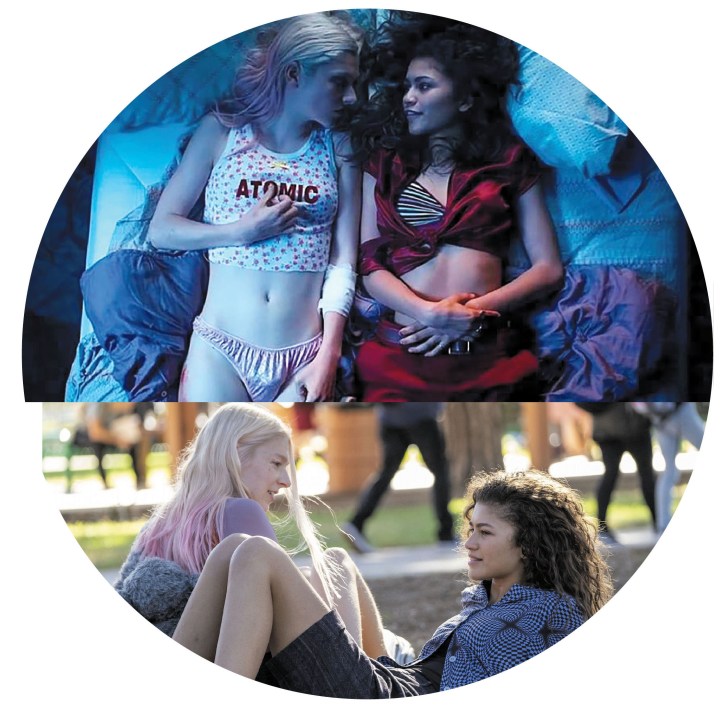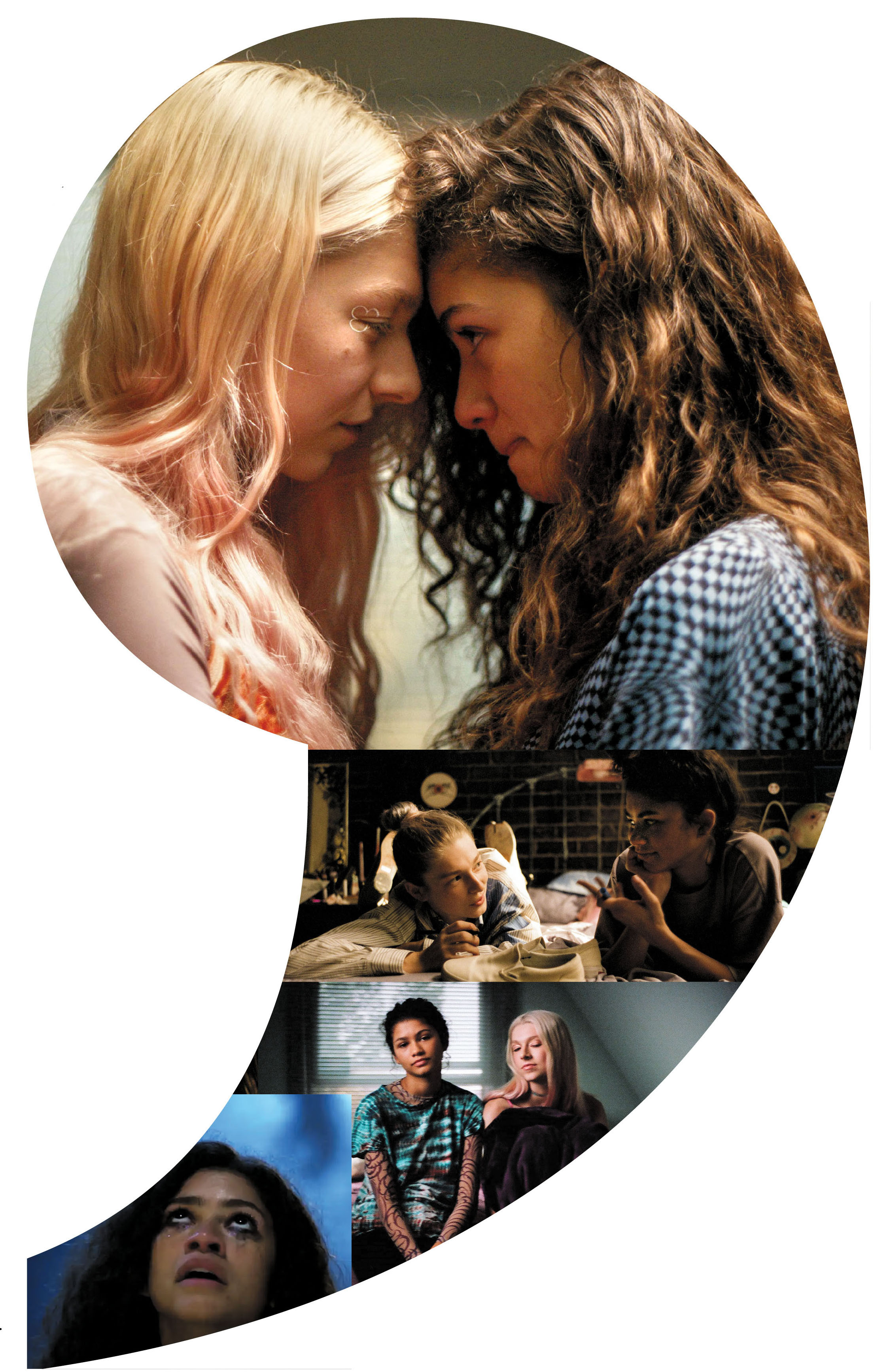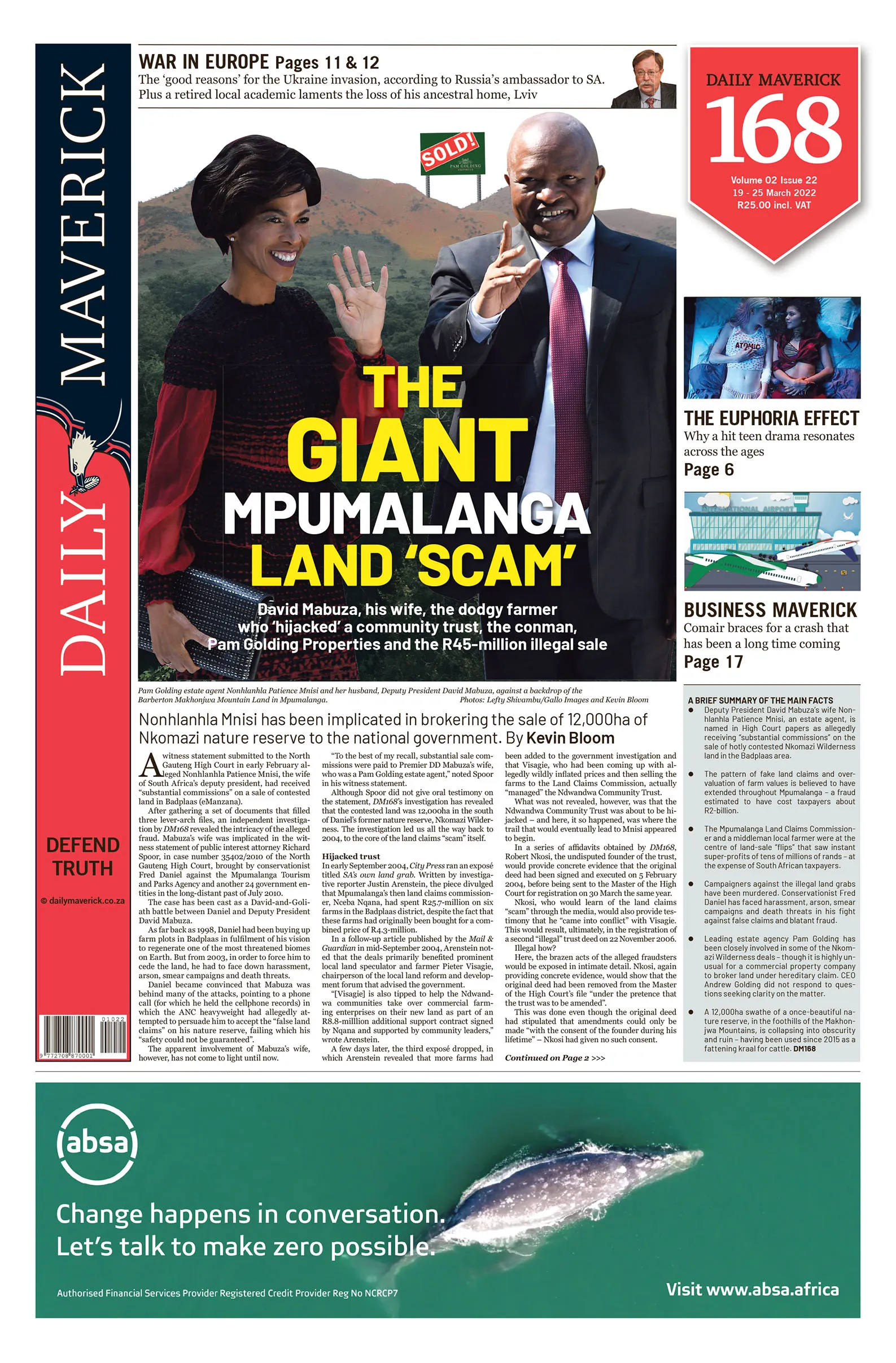LOVE AND FRIENDSHIP
Teen drama ‘Euphoria’ dominates zeitgeist with brutally honest take on addiction, gender and mental illness

The HBO series written by Sam Levinson follows a group of high school students as they navigate love and friendships in a world of drugs, sex, trauma and social media. ‘Euphoria’ has come to dominate our cultural zeitgeist, inciting a storm on Twitter each time an episode aired. But what is it really about?
One could argue that no other show since Game of Thrones has captured the collective imagination of viewers with such intensity and zealous commitment as Euphoria.
HBO reported that viewership for its recently concluded second season – about 16.3 million viewers per episode – nearly doubled that of the first. The key to its potency lies in its themes and the unwavering brutality with which it explores them.
“The storytelling is really good, the characters are complex and relatable, and the performances are excellent,” says Zoey Black, media and communications specialist at Iranti, an LGBTQI+ rights advocacy group “with a specific focus on lesbian, transgender – including gender nonconforming – and intersex persons in Africa”.
In the second of two hour-long special episodes released before Euphoria’s second season, main character Jules (played by Hunter Schafer) delves deeper into her transgender identity.
A conversation about femininity opens up that asks difficult questions about where we derive gender performance, and about who or what inspires and motivates the shapes it takes and the forms it occupies.
As Jules admits she’s considering going off of her hormones, she confesses that what ought to have been a very personal construction of her womanhood has, instead, been informed by the desires of men and the pressures of girl-on-girl expectations.
Schafer, who is a trans woman herself, co-wrote the episode.
“Historically, trans people have been depicted and framed through narratives that do not accurately or appropriately reflect our lives and experience,” says Black. Characters and stories in film and television are “conceptualised, written and performed by people who aren’t trans, or who have no understanding of trans experiences”.
In a country where gender-affirming healthcare is a luxury at best and altogether inaccessible at worst, it is not difficult to imagine countless transfeminine and gender nonconforming South Africans hanging on to Schafer’s every relatable word.
“Euphoria speaks to really pressing matters like substance abuse, like queerness. I mean the relationship between Rue and Jules is top tier,” says Grace Mngadi, a student leader at the University of Stellenbosch.
Although it has never been explicitly stated in the show, Rue Bennett (played by Zendaya), the main character, has been read as gender nonconforming and lesbian.
It would be misguided to think of Euphoria as a coming-of-age show exclusively for “the youth”. Granted, most of the characters are in high school. They speak in the jargon of Western teens and with the precociousness of children battling issues far outside their expected maturity levels. But the themes and emotional language of the show are universal.
“There is a common misconception generally in society that children and adolescents don’t really have mental health conditions like severe depression and suicide at early ages,” notes Mark de la Ray, a clinical psychologist at Netcare Akeso in Kenilworth, Cape Town. “People often think in terms of, ‘Well they just have school, why should they be depressed’.”
My own mother and I, for instance, sat together on the edge of our seats as we watched what could be considered the show’s episodic magnum opus, season two’s fifth episode titled “Stand Still Like the Hummingbird”.
We choked back tears as we watched Rue, who suffers with a crippling drug addiction, sever every tie she has and break down every remaining source of love in her life, while outrunning more demons than a child should face.
In the throes of withdrawal and being caught, Rue lashes out like a cornered dog, visibly losing any trace of her humanity as she weaponises her words and physicality to hurt her friends and family.
“The show is horrifyingly dark, but captures the honesty of the moment,” says Black.
As we watched Rue’s mother and little sister brave the elements of loving and living with an addict, we both understood we were seeing our own trauma for what it was.
“I think it is important to strike a balance between overly brutal and shocking portrayals of mental health and the reality of what it is like,” says De la Ray. “I prefer to say that there should be direct and honest portrayal of suicidal thinking, attempts and the depth that self-harm can reach because of both depression and anxiety.”
De la Ray also notes that many of the young people he has worked with have made reference to the show, punctuating its impact, and that “anxiety, interestingly, [is] one of the highest current primary or secondary diagnoses across the world”.
Euphoria lays bare the terror and grief of addiction and mental illness with an honesty that quells any claim that the show glamourises drug abuse.
The South African College of Applied Psychology reported in 2021 that teen substance abuse was “an ever-growing concern”, with children “as young as 12 years old” beginning to experiment with drugs.
“The issues surrounding Rue and her drug abuse [are] quite relevant when we’re in a world that is playing around with what drug abuse actually means,” says Mngadi. “If you look at our generation, there’s a lot more people who use drugs.”
Mngadi went on to note that the character of Rue adds nuance to the stereotype of addicts, who are typically demonised as lazy and selfish people who ruin their lives through their own reckless stupidity.
“It’s no longer this stigma,” she says. “We see Rue’s life and what substance abuse actually looks like. The fact that she does really care about the people around her, she’s just struggling to make those choices.”
At the heart of the show is a queer love story between Rue and Jules, affectionately labelled “Rules” by fans. It’s too tainted to be practical, but too endearing not to root for. As the two girls explore their budding romance, the queerness of their relationship is treated with refreshing candour, a casual ease typically only afforded to heteronormative relationships.
“The queer characters in the show are multidimensional and queerness forms only an aspect of that identity, which I think is what has been resonating with so many people,” says Black. “We are complex beings with layers to our identities, and that complexity of our experience is something that is sorely lacking in much of our local media and television, which Euphoria gets so right.”
What is of greater concern to the narrative is the ways in which the mental health issues and personal struggles of these characters intertwine with navigating their relationships. We, the audience, are privy to the destruction that untreated mental illness and trauma can inflict on our relations.
“It shows that when mental health issues aren’t treated, people need escapism,” says Mngadi. She notes that the show recognises that people suffering with addiction and mental illness “still have a life and can form romantic attachments”.

Right: Ruby ‘Rue’ Bennett is played by Zendaya and Jules Vaughn by Hunter Schafer. (Images: Courtesy of HBO)
This is a painful mirror to hold up to a nation such as South Africa, where exorbitant psychotherapeutic care is disproportionately skewed toward wealthier citizens in the private healthcare sector, with only “0.9 occupational therapists per 10,000 population”, according to a 2020 article published in the journal Human Resources for Health.
In line with arguably the timeliest consideration of our media today, representation is an integral part of Euphoria’s impact.
“We know that appropriate and accurate representation is critical for how we understand both ourselves and the world around us,” says Black. “We’ve seen this with the representation of black and brown people on screen and in the media and how that has shifted social, political and legal landscapes for people of colour all over the world.”
Mngadi argues that representation of people of colour is an area “with room for improvement” in the show.
“Slightly more brown and black people would’ve been cool,” she says. “The brown people they did cast were on the lighter spectrum of brownness, and I do wish that was unpacked a little bit more.”
Nevertheless, Mngadi says, “it didn’t tokenise that there was ‘that one black guy’ or ‘that one gay girl’. There was a fair amount of that intranormalisation, which is what we’ve been craving.”
Ultimately, the violence and heaviness of what Euphoria showcases speaks to a certain appetite for this among viewers, particularly younger audiences, according to De la Ray.
“Among our young adults and adolescents, there does seem to be a propensity towards watching horror and violent content,” he notes. “This is generally because there is a progressive desensitisation related to the free access teens have to this on the internet, and also a bombardment of images and stories via news feeds.”
I would venture to suggest that queerness, gender, mental illness and representation are the quintessential issues of our times. Euphoria’s success, then, serves to illustrate that the rawest manifestations of the human condition today are more topical than ever. DM168
This story first appeared in our weekly Daily Maverick 168 newspaper which is available for R25 at Pick n Pay, Exclusive Books and airport bookstores. For your nearest stockist, please click here.





















Comments - Please login in order to comment.